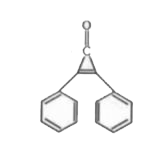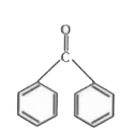If B−Cl bond has a dipole moment, explain why BCl3 molecule has zero dipole moment.
To understand why the B-Cl bond has a dipole moment, but the BCl₃ molecule has a zero dipole moment, we can break down the explanation into clear steps:
1. Understanding Dipole Moment:
- A dipole moment occurs due to the difference in electronegativity between two atoms in a bond. In the case of the B-Cl bond, chlorine is more electronegative than boron, resulting in a dipole moment that points from chlorine (δ-) to boron (δ+).
2. Structure of BCl₃:
- BCl₃ (boron trichloride) has a trigonal planar geometry. This means that the three chlorine atoms are arranged around the central boron atom in a flat, triangular shape.
3. Hybridization:
- The boron atom in BCl₃ undergoes sp² hybridization, forming three equivalent sp² hybrid orbitals that overlap with the p orbitals of the chlorine atoms to form B-Cl bonds.
4. Bond Angles:
- In a trigonal planar molecule like BCl₃, the bond angles between the B-Cl bonds are all 120 degrees. This symmetrical arrangement is crucial for understanding the overall dipole moment of the molecule.
5. Individual Dipole Moments:
- Each B-Cl bond has its own dipole moment directed from chlorine to boron. However, due to the symmetrical arrangement of the three B-Cl bonds, these individual dipole moments are oriented at equal angles (120 degrees) to each other.
6. Vector Addition of Dipole Moments:
- When we consider the vector addition of the dipole moments, the three dipole moments cancel each other out due to their symmetrical arrangement. This means that the net dipole moment of the BCl₃ molecule is zero.
7. Conclusion:
- Therefore, despite the presence of polar B-Cl bonds, the overall molecular geometry of BCl₃ leads to a cancellation of the dipole moments, resulting in a molecule that has a zero dipole moment.
- A dipole moment occurs due to the difference in electronegativity between two atoms in a bond. In the case of the B-Cl bond, chlorine is more electronegative than boron, resulting in a dipole moment that points from chlorine (δ-) to boron (δ+).
- BCl₃ (boron trichloride) has a trigonal planar geometry. This means that the three chlorine atoms are arranged around the central boron atom in a flat, triangular shape.
- The boron atom in BCl₃ undergoes sp² hybridization, forming three equivalent sp² hybrid orbitals that overlap with the p orbitals of the chlorine atoms to form B-Cl bonds.
- In a trigonal planar molecule like BCl₃, the bond angles between the B-Cl bonds are all 120 degrees. This symmetrical arrangement is crucial for understanding the overall dipole moment of the molecule.
- Each B-Cl bond has its own dipole moment directed from chlorine to boron. However, due to the symmetrical arrangement of the three B-Cl bonds, these individual dipole moments are oriented at equal angles (120 degrees) to each other.
- When we consider the vector addition of the dipole moments, the three dipole moments cancel each other out due to their symmetrical arrangement. This means that the net dipole moment of the BCl₃ molecule is zero.
- Therefore, despite the presence of polar B-Cl bonds, the overall molecular geometry of BCl₃ leads to a cancellation of the dipole moments, resulting in a molecule that has a zero dipole moment.
Topper's Solved these Questions
Similar Questions
Knowledge Check
Which has maximum dipole moment ?
A B
B C
C D
D
Which of the following has zero dipole moment?
A B
B C
C D
D
The molecules having dipole moment are :
View SolutionWhich has maximum dipole moment ?
View SolutionWhich of the following has zero dipole moment?
View SolutionWhich among the following pairs of molecules have zero dipole moment ? .
View SolutionWhich of the following has zero dipole moment ?
View SolutionWhich of the following has zero dipole moment ?
View Solution
